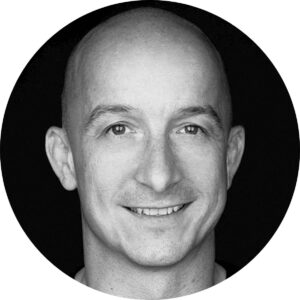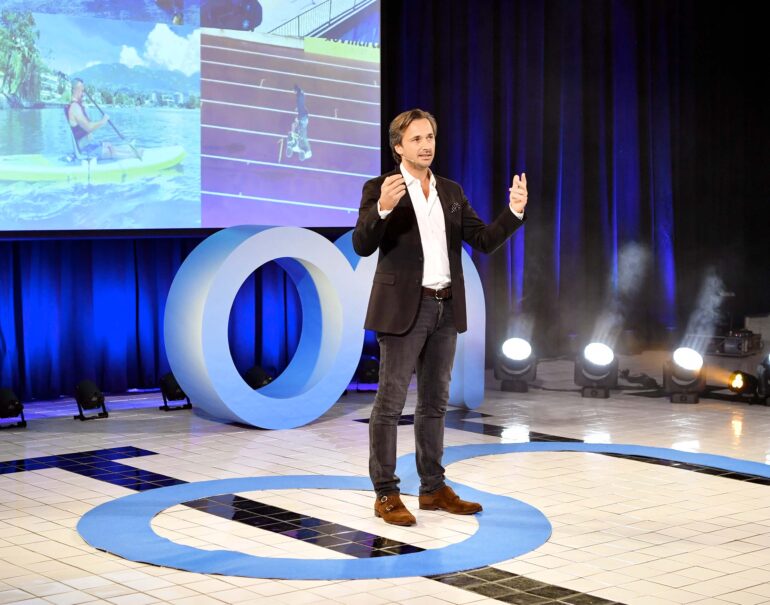The ON Foundation promotes the development of regenerative therapies in the field of orthopaedics. The foundation, established by the Geistlich family, also focuses on international networks in research and on training for doctors and researchers.
The Geistlich family set up its first foundation, the Osteology Foundation, in 2003. It has made a decisive contribution internationally to the further development of regenerative dentistry, according to Kay Horsch, Executive Director of the ON Foundation. He adds: ‘Regenerative medicine has even greater potential in the field of orthopaedics and the many diseases of the musculoskeletal system. However, it has not had much support.’ In order to fill that gap, the Geistlich family decided to establish the ON Foundation in 2017.

Enabling pain-free movement
The aim of orthoregeneration is to heal injuries to the musculoskeletal system (e.g. meniscus or tendon damage) and improve degenerative diseases (e.g. spinal intervertebral discs or osteoarthritis of the knee or hip joint) with the help of biology. Current solutions frequently consist of removing injured or degenerated tissue and replacing it with a titanium prosthetic. The limited lifespan of these devices presents a significant problem for an increasingly active and ageing society. Technologies that enable the regeneration and retention of the tissues are complex and still require some research and development before they are ready for clinical use. But the potential to help our ageing society is enormous, says Horsch, adding that these innovative treatment methods will one day also save healthcare costs.
Driving development
The ON Foundation wants to drive the development of new regenerative therapies. To this end, it brings the topic to doctors and researchers with the aim of contributing towards an improvement in patients’ quality of life in the long term. The foundation provides training and creates networks between doctors and scientists worldwide, with fellowships, scholarships and educational grants, and also actively supports research. Horsch says: ‘We target our support at research projects that test innovative ideas at an early stage and have the potential to lead to new clinical solutions.’
Worldwide, diverse networks
Horsch explains the foundation’s approach: ‘To start with, we deliberately approached the well-known specialist organisations that cover the larger areas within orthopaedics – sports medicine, spinal problems, research.’ Subsequently, support was provided in the form of partnerships for those groups and individuals interested in the field of orthoregeneration. ‘In this way, a network of almost 2,500 doctors and scientists has sprung up very quickly,’ he says. About 50% belong to the younger generation and more than 25% are experienced experts. The ON Foundation also promotes research and clinical fellowships, from which valuable international collaborations have already arisen.
Strategic exchange between foundation and founding company
The Geistlich company is itself very active in research and international networks. Its focus is on the development of new, marketable processes and products; it conducts intensive product development and goes through laborious approval procedures. The foundation, on the other hand, promotes the next generation of doctors and scientists. ‘We want them to use their creativity to develop innovative approaches and regenerative methods,’ explains Horsch. Foundations such as ON can bridge the gap between academic research at universities and product development by companies, as they are better able to maintain an open exchange with experts since they do not have any commercial goals. The foundation and its founding company enjoy a relationship based on strategic exchange: CEO Ralf Halbach is a member of the foundation’s Board of Trustees, but does not have any voting rights. ‘All strategic and operational decisions are made by doctors and scientists,’ emphasises Horsch.
Increasing independence and impact
In its first few years, the ON Foundation was able to rely on both financial support from the company and a service agreement; e.g. for office space. Today, following a successful start-up phase, the foundation is gradually moving away from the founding company and is operationally completely independent. The founding company continues to support the ON Foundation financially. ‘In order to expand the foundation’s activities and increase their impact, and to further increase independence, we are looking for more supporters,’ says Horsch. ‘These could be either patrons or other foundations.’
Enabling mobility
Mobility is at the core of the ON Foundation’s activities. ‘We help young people with injuries and older people to stay mobile for longer without limitations,’ says Horsch. With its focus on regeneration and international collaboration, the foundation gets orthopaedics moving, and new training formats and funding give extra impetus to research. Horsch’s top priority is ‘to encourage people and organisations to support us in order to ensure the sustainable growth of our foundation’.



